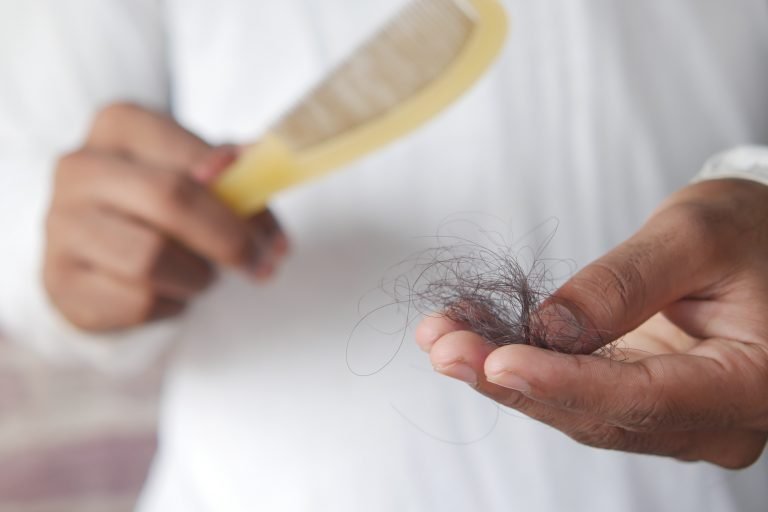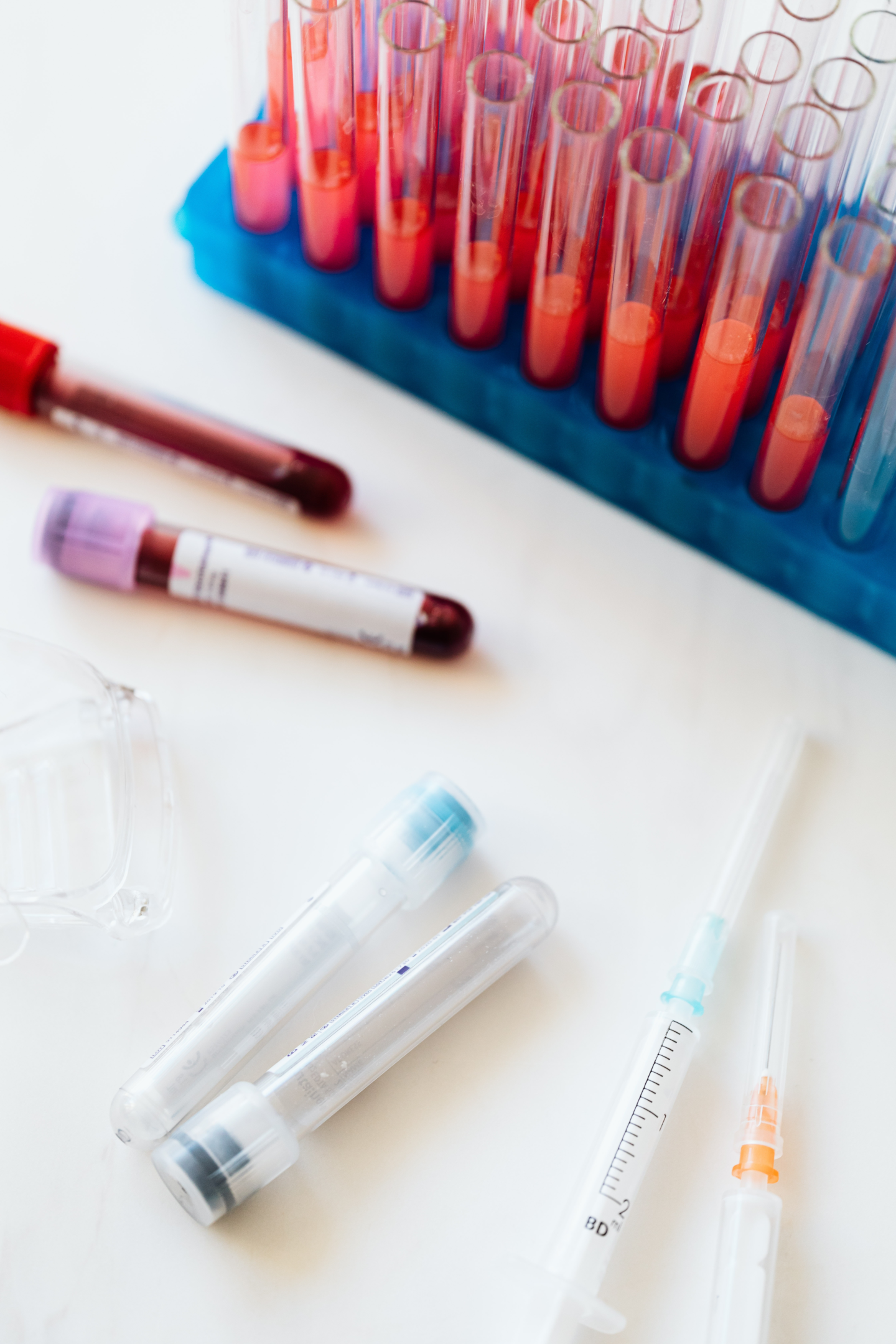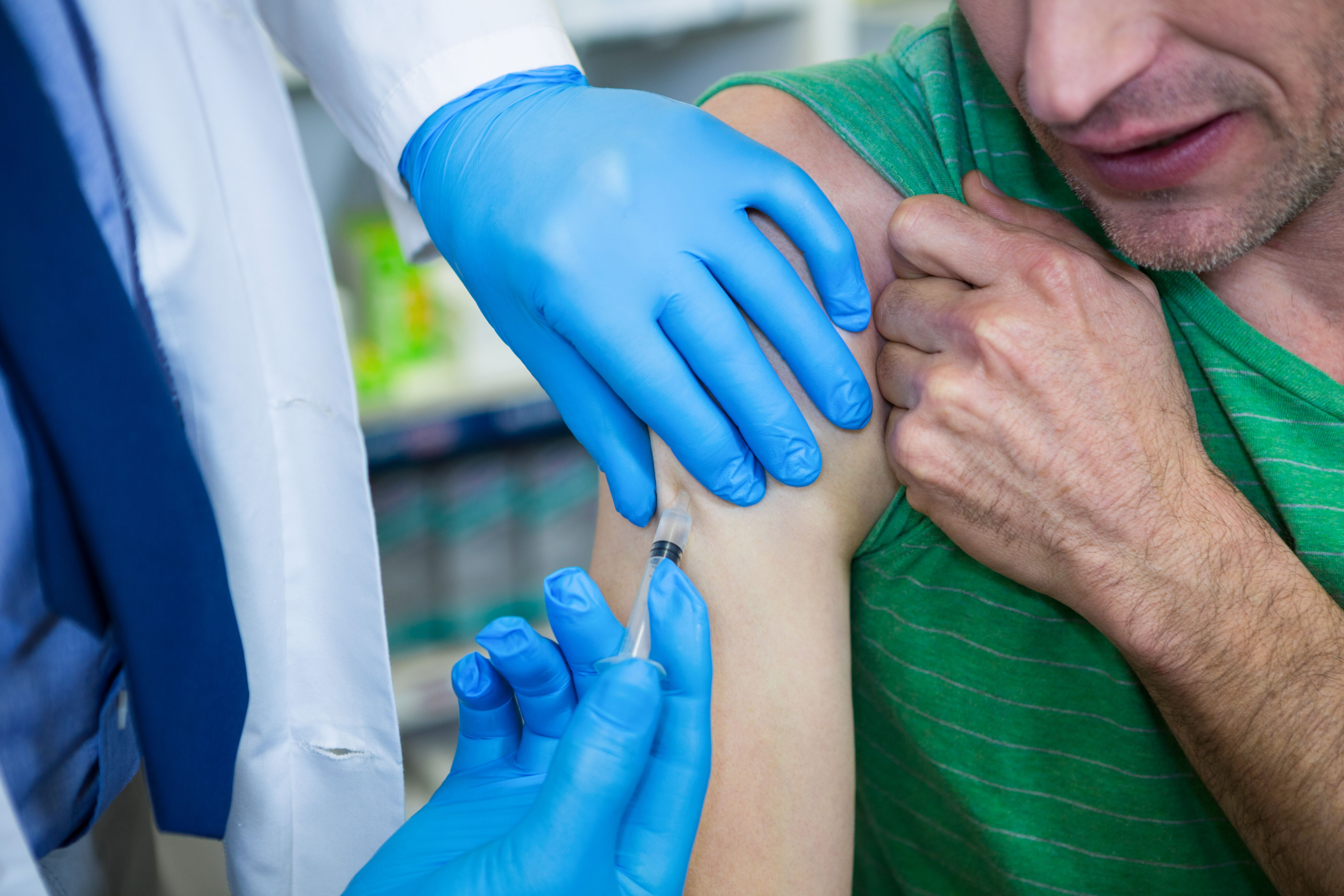
Page Contents
Syphilis hair loss is not something many people are familiar with. Though syphilis can cause hair loss, this is a side effect of the syphilis condition that isn’t common. But what is syphilis, and what can you do about hair loss caused by it?
What Is Syphilis?
Syphilis is not commonly talked about due to being a sexually transmitted disease. It is caused by a highly contagious bacteria named treponema pallidum.
This disease can be passed through any type of sexual intercourse as well as through direct contact with scabs, cuts, or skin lesions, which syphilis causes.
It is also one of the few sexually transmitted diseases that can remain dormant for years or can be active while showing no symptoms. Though it affects more men than women, women can pass syphilis on to their unborn children.
The Different Stages Of Syphilis
There are different stages of syphilis, each with different symptoms. Primary and secondary syphilis don’t cause much damage, and you can usually recover from any damage done.
Primary Syphilis
This is the first stage after infection. A sore will appear at the site of infection, which is usually somewhere around the mouth or private parts. This sore can appear up to three weeks after infection and will usually heal in six weeks.
Secondary Syphilis
Secondary syphilis presenting can happen immediately after the first stage or not for months. The manifestation of secondary syphilis comes in the form of:
a non-itching rash
wart-like lesions
mucous patches in the mouth
swollen lymph nodes
fever
aching joints
headaches
hair loss
The symptoms of this stage can come and go intermittently, which is why many patients with secondary syphilis sometimes don’t acknowledge it.
Tertiary Syphilis
This is the last stage of syphilis. Over time you will have permanent damage to your heart, lungs, blood vessels, liver, digestive tract, and other important organs.
There is also a chance it will turn into neurosyphilis, which is where the disease attacks your nervous system. This causes spinal damage, blindness, paralysis, mental issues, and other problems.
Latent Syphilis
Though not technically a stage, this is what syphilis is called when it goes dormant. There are usually no symptoms whatsoever in this stage.
This usually happens between the secondary stage and the tertiary one and can last for any length of time.
What Is Syphilitic Alopecia?
Syphilitic alopecia, also referred to as alopecia syphilitica, is the term used for hair loss caused by syphilis. Not everyone with syphilis gets syphilitic alopecia.
In fact, less than 10% of people with this disease get hair loss. There are two separate reasons why hair loss can happen in a syphilis patient.
Symptomatic Syphilitic Alopecia
Symptomatic syphilitic alopecia is where the skin lesions from the secondary syphilis stage form on the scalp. These can look similar to tinea capitis, which it may be mistaken for.
This causes a type of scarring alopecia as the hair follicles suffer permanent damage. It can also be quite painful and can cause redness, itchiness, and general irritation.
Essential Syphilitic Alopecia
Essential syphilitic alopecia does not involve any lesions on your scalp. This syphilitic alopecia can cause hair loss on any part of your body, including your arms, legs, eyebrows, etc., and can be further divided into three categories:
Moth-eaten alopecia
General thinning
A combination of 1 and 2
With moth-eaten alopecia, the hair loss is patchy and similar in appearance to the odd pattern moths make when they chew up clothes.
Moth-eaten alopecia can happen over just a portion of your scalp, or it can cover the whole thing. Though it isn’t as damaging to your hair follicles as the lesions, moth-eaten alopecia looks much worse.
With general thinning, you have diffuse hair loss over your whole scalp. You may not notice your hair loss at first, or you may think you have just hit the part of your hair growth cycle where more of your hair follicles naturally come out.
If you have the third type of hair loss from this list, you will have a moth-eaten appearance on some parts of your scalp and diffuse thinning over the rest.
The first type is the most common for syphilis hair loss, with general hair loss over your whole scalp being extremely rare to have on its own, according to more than one study.
Telogen Effluvium
The third stage of syphilis is extremely hard on your body. As your internal organs become affected, it can put enough stress on your body to affect your hair growth cycle.
This type of syphilis hair loss causes your hair follicles to drop their hair shaft in the resting phase of your hair growth cycle before it is supposed to do so.
How To Tell If You Have Syphilis Hair Loss

As mentioned, syphilis can mimic other conditions. Syphilis hair loss can sometimes be mistaken for alopecia areata. The only way to determine what’s causing your hair loss is through testing.
Your doctor will usually do a test if your scalp hair is coming out in a moth-eaten pattern or in a way that doesn’t match up with normal types of alopecia. This is usually done with a blood test where serological screening for syphilis is done.
Syphilis Treatments
Syphilis is usually treated by benzathine penicillin g, which has the most success with the treponema pallidum bacteria. If caught in the early stages, a single injection of it may be all the treatment you need.
In later stages, especially if there is a risk you are immunocompromised due to being HIV positive or having something else from unprotected sex, the appropriate treatment is longer. Three weekly treatments are given for this diagnosis.
For those allergic to penicillin, the options are:
oral doxycycline twice daily for two weeks
tetracycline 500 mg 4 times daily for two weeks
azithromycin 500 mg daily for one week
In the neurosyphilis stage, you are usually given your treatment intravenously. If you don’t get early treatment, you may need an antibiotic and other additional treatments.
It is also worth noting that the damage caused by hair loss and the other symptoms is often irreversible.

What Can You Do About Syphilis Hair Loss?
Depending on how long you were in the secondary stage and if it is lesions causing your hair loss, your hair follicles may be able to recover without assistance.
According to a study done by the Center for Disease Control and Prevention (CDCP), syphilis hair loss usually resolves itself in around three months. Some people in the early stages notice their hair density improving after just a few weeks.
Syphilis Hair Loss Treatments
A dermatologist has many options for treating hair loss. The most common treatment for syphilis hair loss is platelet-rich plasma injections.
This involves taking blood, which is then filtered for platelets. These are injected into your scalp in the areas where your hair follicles are most in need of some help.
Frequently, some other topical treatment like finasteride or minoxidil is used in addition to the injections. Both of these are proven to help with hair loss by increasing circulation to your scalp.
Unlike androgenetic alopecia, which causes hair loss on the top of your scalp, the damage caused by syphilis hair loss is usually all over. This means a treatment like a hair transplant is not an option if your hair follicles are scarred too badly.
Other areas you can help your hair follicles include generally treating them well by avoiding damaging them with products and taking hair loss supplements.
A Few Considerations
Those who have syphilis commonly have some other medical condition like HIV as well. The presence of another disease will often compromise your immune system.
This increases the chances that you will also have a fungal infection, which causes additional hair loss and more damage to your hair follicles.
In short, if you have hair loss from a syphilis infection, you are more likely to be losing hair for another reason as well. In this case, you may want to cover all the possible reasons you could be losing your hair.
For example, since syphilis can affect your digestive tract, you may not be able to absorb nutrients properly. In this case, a supplement of some type might be necessary for your hair growth.

Final Thoughts
It is essential syphilitic alopecia is treated as soon as you know you have it. Hair loss because of syphilis is very serious and should be treated as soon as you get your diagnosis.
If you have or had syphilis, did you find anything that helped your hair?






